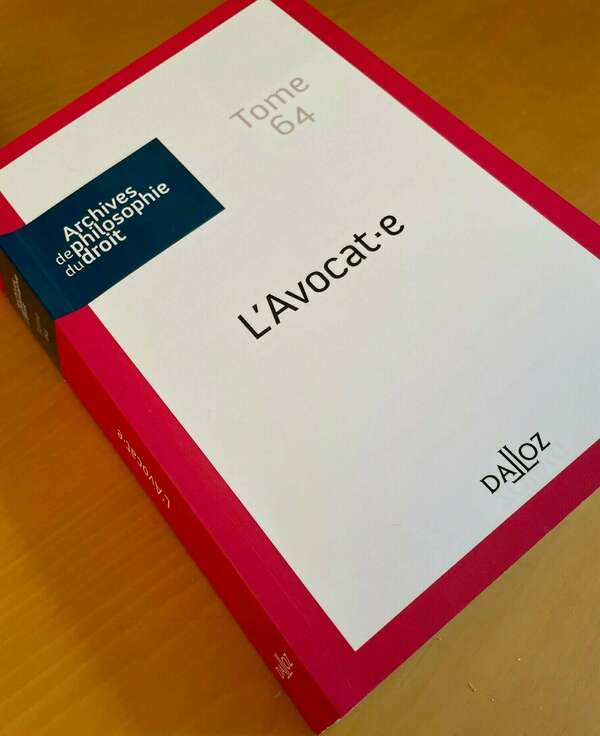Effective International Mediation Advocacy: Expectations of a European client*
by Louis B. Buchman
Attorney at Law, Member of the Paris and New York Bars
* This paper was published in IDR – Journal of International Dispute Resolution (1/2004).
Let us assume a European businessperson is involved in an international mediation, and let us assume further for the sake of discussion that such mediation is to be held in the U.S.
He/she will have to hire local counsel. It is essential for a smooth ongoing relationship between the European client and the U.S. counsel that the local counsel be aware of what the client expects from its local counsel.
I would like to focus on aspects which are usually and unfortunately not considered enough, and on which, at least in my own experience, the success or failure of mediation often hinges. My remarks should generally be applicable to international mediations involving a European party, held outside of Europe.
Over the last thirty-some years, I have advised a number of European clients in their dealings with and adversarial proceedings against U.S. businesses and U.S. clients (and their counsels) in their dealings with and adversarial proceedings against French businesses, and with the benefit of hindsight, I see clearly that there are cultural differences on the one hand, practical and business differences on the other hand, which may cause any mediation to unravel if left unchecked.
Cultural differences
We all have a tendency, not only to feel comfortable in our own environment, but to believe that this is the case for everyone, including those who are foreign to that environment.
This misperception is even stronger if the environment we are talking about happens to be the world’s dominant economy. Local counsel in the U.S. will all too often believe that because he/she is facing a foreign businessperson who at first appears to be fairly sophisticated, that person has an understanding of the issues similar to his/her own.
NEED FOR GREATER HAND-HOLDING
The truth of this matter is no, that person is on foreign soil in an unfamiliar environment, and will require a fair amount of hand-holding on the part of the U.S. counsel. So the first caveat for the local counsel is not to take anything for granted, and more importantly when the European businessperson expresses surprise to anything he/she might say, to be careful not to have that common, dismissive reaction which consists in thinking: «This person is naïve ». European businesspersons are anything but naïve. Their surprise is genuine, and is a legitimate expression of uneasiness in discovering unknown terrain. If local counsel does not admit this fact, he/she risks appearing arrogant and patronizing.
Another caveat regarding the European litigant: European is actually a misnomer: the European litigant is first and foremost German, or British, or French, or Belgian, or Dutch, or Swiss, or Italian, or Swedish, etc., and the mindsets of each are as different as those of Texans, Californians, New Yorkers or Georgians, to name only a few.
GREATER FORMALITY
Most of the time, most Europeans who are coming into a U.S. business and legal environment are uneasy about what they perceive as excessive familiarity, i.e. the immediate first-name basis of interpersonal communication, without even asking the person’s permission to do so. This uneasiness is not limited to European litigants, of course, and is even stronger on the part of Japanese clients. This is only one example.
I could also mention the many problems arising out of the need to overcome language barriers, the differing perceptions of time and punctuality, but I shall concentrate on practical and business differences: Practical and Business Differences
SECRECY vs. TRANSPARENCY
A big business difference is the importance of transparency in communication and public relations, because the USA is an open society, as opposed to more secretive ones in Europe, although this is now changing with new corporate governance laws and regulations being enacted. The extent of procedural discovery which is required in the US invariably comes as a shock to any European litigant.
Nevertheless, as already mentioned, the European litigant is not naïve, is reasonably informed about the U.S. situation, from the economy to the political situation, and generally understands the important distinction between the powers of the Federal administration and those of the States.
However, the European litigant has concerns, which for the most part come from what he/she has read or seen on his/her TV screen at home, and it will be local counsel’s primary role to either allay those concerns when they are exaggerated, or to put them into their proper perspective:
What are these concerns?
LITIGIOUS SOCIETY
The USA have a deserved reputation as being the most litigious, or litigation-prone, society in the world. Therefore, the European litigant is, I would submit with good reason, weary of being dragged into litigation in the U.S., and wishes to avoid that risk to the extent possible, because of the costs involved, of course (damages and attorney’s fees) but also because of the drain on management time (depositions, etc). Mediation in this context appears as an agony-saver.
AGGRESSIVITY
Throughout Europe, civility is recognized as needed to smooth the workings of society. To be aggressive (including towards the other side) is to be impolite, and therefore creating an unnecessary disturbance of the peace which should prevail. So loosing one’s temper, or appearing to do so, or simply being discourteous to the other side in order to display zealous advocacy, is (apart from not making the task of the mediator any easier) one sure way of dismaying and even shocking the European client, and instead of ingratiating the local counsel to his/her client, actually alienates the trust the European client has shown in selecting the local counsel as his/her own.
GREED AND DOUBLE-DEALING
Money and earnings are a conversation piece in the U.S., not in Europe. How much we make is none of anybody’s business.
The U.S. executives of European-owned businesses in the U.S., when they openly discuss their earnings and negotiate hard for their stock options, appear to be excessively greedy to their European counterparts. Greed of local management is often associated in a European mind with lack of commitment, if not with an outright breach of fiduciary duty. So local counsel should show some understanding when, after a hard bargaining session, he/she is repeatedly asked by his/her European client, who may have had already that experience with local executives: May I rely on our local management to help me out on this? In fact, the client sometimes does not trust his/her own local management more than he/she trusts the other side.
PERFORMANCE AND IF LACK THEREOF, ENFORCEMENT
Another classic, pervasive fear is whether the other side will actually deliver on its commitments, assuming a settlement agreement is eventually reached.
HOW TO ADDRESS THESE CONCERNS?
These concerns, which, again, are perfectly legitimate, may be addressed either by remedial, trust-building measures on the part of local counsel (meeting, teleconferencing and meeting again, listening a lot to the European client) or by containment measures (providing for arbitration if the mediation attempt fails), and by a proper and complete explanation by the local counsel to its European clients of all risks involved with likely costs, expressed in dollars and cents. The European litigant will naturally want to know the chances of a full-blown court proceedings, the likelihood of an appeal, the probable length of proceedings until a final, enforceable judgement, the impact of such proceedings on management time, whether this is likely to bring bad publicity in the US, etc.
But it is most likely that the European litigant will want to know early on what the attorney’s fees are going to amount to at the end of the day. Most European litigants do not understand at all and resent the sheer volume of the legal briefs which are being prepared for the mediation, the full implications of which they are generally at a loss to grasp without extensive explanations, themselves costly. This resentment is compounded by the Billing Hour System. Therefore, if local counsel wants to please his/her European client, brevity (to the extent possible) is the key, and pre-agreed caps on billings are appreciated.
So to summarize, the most important requirements of a European litigant, the ones which, if met, will mean the success of the mediation and if not, may entail its failure, are:
- for the U.S. counsel to bridge the contradiction between being both thorough, understandable and affordable,
- for any U.S. executives who will appear on behalf of the European litigant, not to appear to have divided loyalties, and not to be wavering in their answers to questions from the mediator or from the other side.
In the final analysis, the European litigants want to know on what terms they are settling, and they want it with clarity and precision at least equal to that demanded by any U.S. litigant, if not more.
One more caveat: Local counsel should never underestimate the importance of atmospherics. They are just as essential as the underlying substantive issues.
To conclude with, counsel should keep in mind the golden rule of effective mediation advocacy, i.e. that, quite paradoxically, it is in his/her interest, as well as in his/her client’s interest, to let his/her client do as much of the talking as possible, and to intervene as little as possible during sessions (but that restriction does not of course apply during caucuses).
Nothing is less conducive in my experience to a successful mediation than counsels hijacking their client’s speech!


